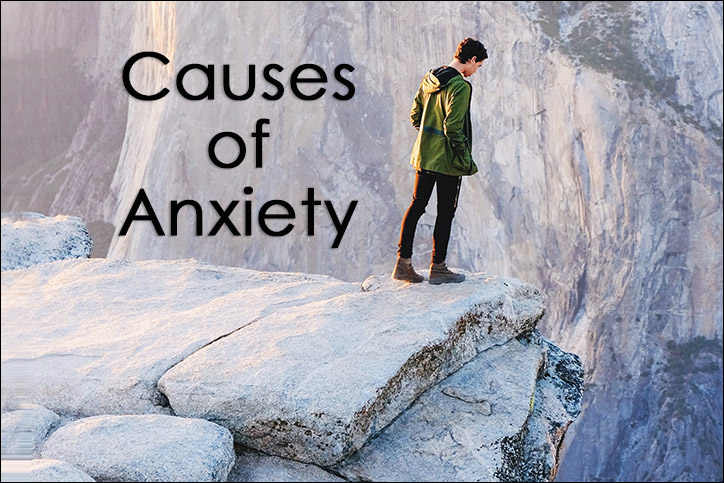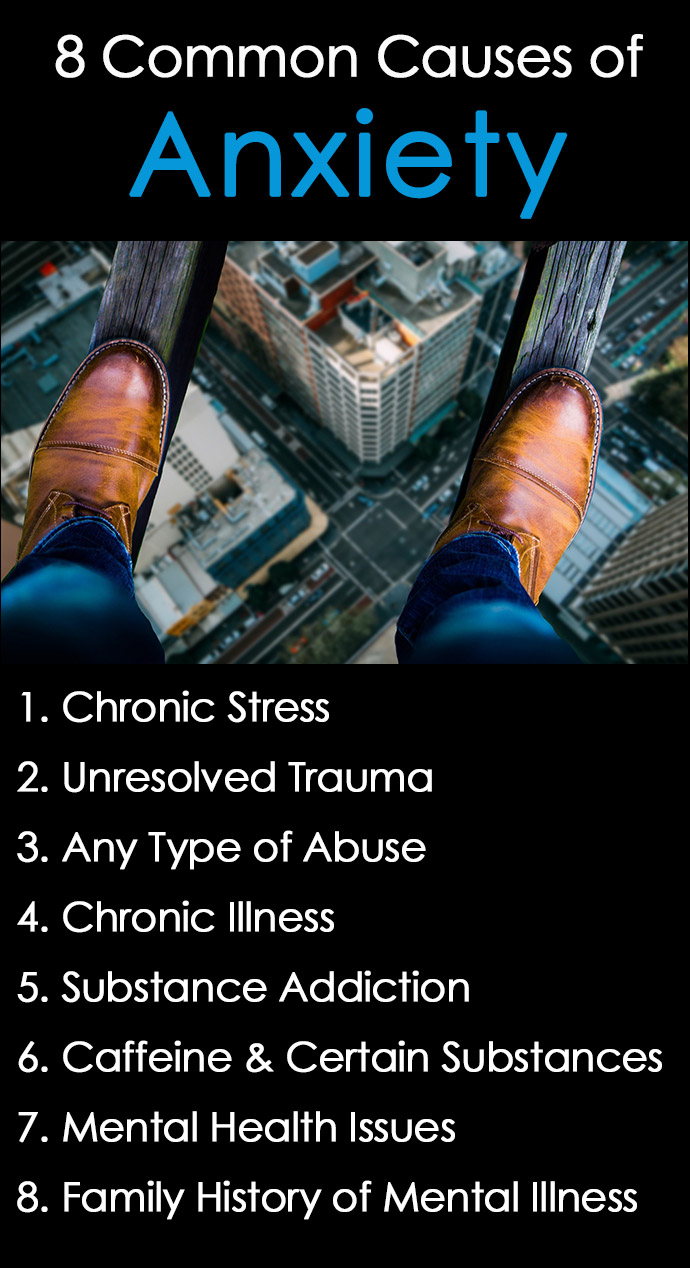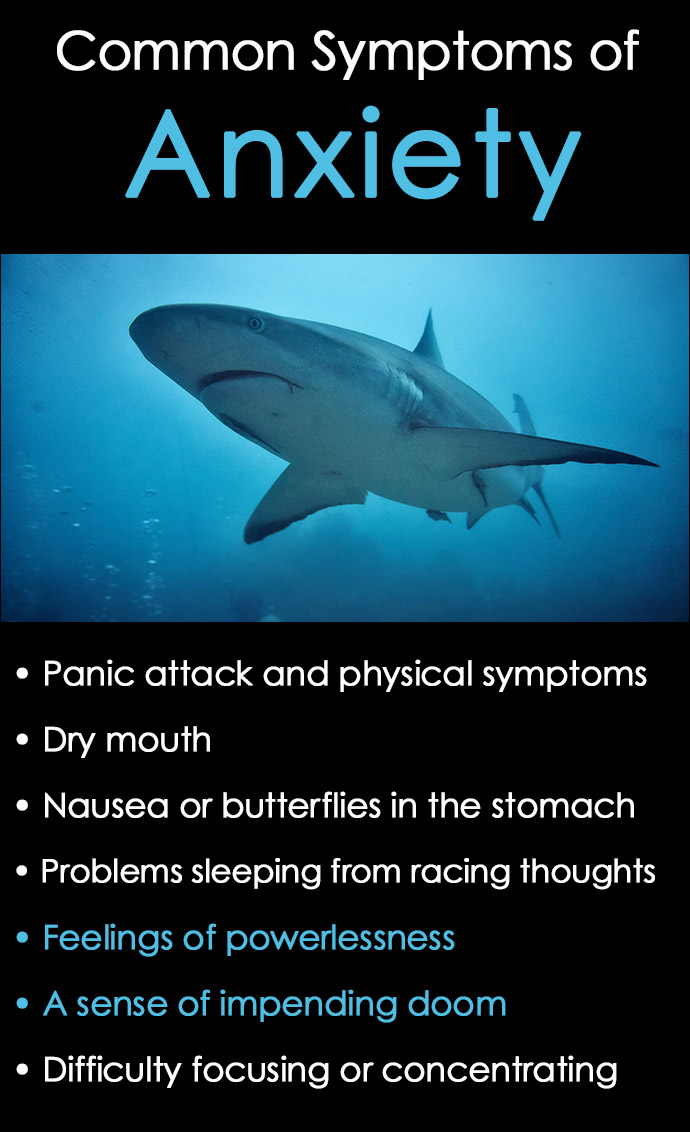Table of Contents
There are many different causes of anxiety and a range of symptoms depending on the severity of the condition.
Anxiety is a normal, healthy human response to a real or perceived threat. It can be brought on by an immediate danger, causing an increased heart rate and a burst of adrenaline that can help us escape harm or save others.
For some people, anxiety may occur due to a fear of the unknown, or a vague sense of dread that leads to lingering worry, obsessive thoughts, and unwanted behaviors.
Whatever the underlying issues might be, everyone experiences occasional bouts of anxiety in varying degrees. It is simply the cost of being human and it is designed into our emotional system.
Understanding the causes of anxiety symptoms and the most effective treatment approaches can help people move through excessive fear and into a healthier and more productive state of mind.
What Causes Anxiety?
The short answer is that almost anything can cause anxiety, depending on a person’s perception of a particular event, situation, or task. People feel anxious when their neural circuitry senses danger, even when there is none.
While most anxiety is short-term and passes once a person gets through a stressful situation, there are those who develop anxiety disorders.
In fact, anxiety disorders are the most common form of mental illness in the United States, with nearly 40 million experiencing an anxiety disorder in a given a year.
Of the 6 types of anxiety disorders, a generalized anxiety disorder is the most common. It is characterized by worry and excessive anxiety about any number of different life situations, for more days than not, over a period of at least six months or more.
Common Causes of Anxiety
Being able to identify what is causing anxiety is an incredibly useful tool for overcoming the symptoms.
Knowing the reason behind the problem can help people face it, seek treatment, develop a healthier perspective on the issue, and begin to move through it.
8 Common Causes of Anxiety Include:
1. Chronic stress from situations like an intense working environment, financial troubles, unstable housing, or unresolved grief from the loss of a loved one
2. Unresolved trauma from childhood, or a more recent life-threatening event
3. Any type of abuse, from verbal and emotional, to physical and sexual
4. Chronic illness, such as cancer, diabetes, asthma, high blood pressure, or hormonal imbalances as a result of thyroid problems
5. Substance abuse and misuse, including an addiction to alcohol, drugs, or prescription medications
6. Certain substances such as caffeine, nicotine and even over-the-counter medications can lead to excessive anxiety
7. Mental health issues, including anxiety disorders or depression can make people more likely to experience similar issues
8. Family history of mental illness
Whether a person has a diagnosable anxiety disorder or is just experiencing a normal, even reasonable bout of anxiousness, the symptoms of anxiety can seriously interrupt a person’s ability to function in a healthy manner.
Symptoms of Anxiety
The symptoms of anxiety can range from mild to debilitating.
How the symptoms manifest, and how long they last, will vary from person to person, as well as the root cause of the anxiety.
Some of the more common symptoms of anxiety can include:
- Panic attack with physical symptoms, such as shortness of breath, racing heart, sweating, tremors, or dizziness
- Dry mouth or feeling very thirsty
- Nausea or feeling “butterflies” in the stomach
- Problems sleeping due to racing thoughts
- Feelings of being powerless
- A sense of impending doom
- Difficulty focusing, concentrating, or making decisions
A person experiencing many of the symptoms of anxiety may isolate himself or herself, or go out of their way to avoid situations, friends, or obligations that cause worry and excessive fear.
Anxiety disorders, as well as normal bouts of anxiety, are treatable and can help people move through the episodes more quickly.
Treatment for Anxiety
The specific treatment for anxiety will depend on the type of symptoms a person is experiencing, in addition to the severity.
Lifestyle Changes
In many cases, simple lifestyle changes can reduce some of the most common the symptoms of anxiety.
These lifestyle changes include regular exercise, a healthy, well-balanced diet, and avoiding triggers like caffeine, alcohol, and drugs.
If work is a major cause of anxiety, there are many low stress jobs that are well suited for people who are anxious or have a difficulty dealing with stress.
Counseling and Therapy to Treat the Causes of Anxiety
For mild and severe cases of anxiety, one-on-one counseling can have a significant impact on alleviating many anxiety issues.
Counseling will also address any other underlying causes of anxiety, such as a substance use disorder, that a person may need treatment for in order to make a full recovery.
Therapy approaches like Cognitive Behavioral Therapy (CBT) and Dialectical Behavior Therapy (DBT) have proven to help many people suffering with symptoms of anxiety.
These types of therapies teach people how to recognize and change inaccurate or negative thought patterns that can lead to stress, worry, or anxiety.
Prescription Medications as a Treatment for Anxiety
Some people may need prescription medications to treat anxiety symptoms.
Anti-anxiety medications combined with therapy is often the most effective approach for curtailing the symptoms.
Prescription medications like benzodiazepines can calm the mind and ease severe symptoms of anxiety.
It’s important to only use these types of medications for a short period of time and carefully follow the directions because they can be addictive, and benzodiazepine withdrawal may cause serious health complications.
Antidepressants, such as selective serotonin reuptake inhibitors (SSRIs), may help regulate the amount of serotonin in the brain causing anxiety. These types of medications include Lexapro, Paxil, Zoloft, or Prozac.
Beta-blockers, which are typically used to treat high blood pressure, can also help reduce some of the physical effects of anxiety, such as a rapid heart rate, trembling, or shaking.
It’s important to remember that anxiety is a normal and treatable health condition.
Treatment can help people identify the root causes of anxiety and learn how to manage the symptoms, and in many cases, overcome the issue entirely.





